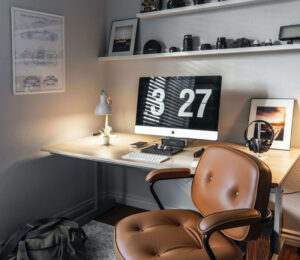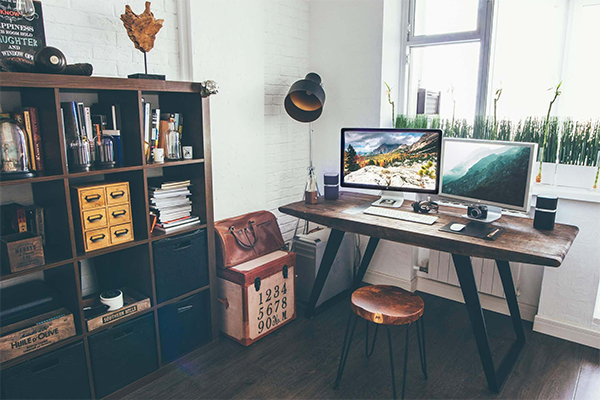As the Government prepares its plans for sending staff back to offices from next month, a survey by the Chartered Institute of Professional Development (CIPD) has found that home working is set to double compared to pre-pandemic numbers.
Businesses are adapting to a new way of working. With many employees continuing to work remotely, organisations are rethinking how much office space they actually need and offering more flexible working arrangements.
As many of you will have found out over the last few months, trying to commandeer the kitchen table as your working space when you have the family at home, is near impossible. However, working from home does have many benefits, and with the right set up, you will waste less time commuting, be more productive, and work in the comfort of your own home (wearing your slippers).
Have you thought about a home office extension?
Wouldn’t it be great to have your own little work sanctuary within your home, that you can close the door on at the end of the day? It would make day-to-day life easier for you and your family, as well as add value to your property.
A good place to start is to walk around your property and think about where a home office would be best suited. You may have a large garden with room to extend out, so you have a lovely view of the garden while you work? Perhaps you have a smaller bedroom, that could become an office, and you build a second story extension to give you that extra, larger bedroom? Our experienced architectural designers can help support you with those decisions, based on the age and style of your property.
A home office is an asset
In all circumstances, you should think about your home office as an asset. A home office will make your house more desirable if you choose to sell, especially with the trend towards remote working gathering pace – many more people will be looking for that extra space.
Commuting costs vs extension
A good exercise to help justify a home office extension is to work out how much you would spend on travel costs, work clothes, lunches, etc a year. For example; if you lived in Milton Keynes and worked in London, you may catch the train each day, grab a coffee at the station, use the tube, and have lunch at a local café.
Estimated breakdown of costs based on a 256 working day year:
- Annual season train ticket: £5,500 (www.trainline.com)
- Parking at the MK train station: £151 per month x 12 = £1,812 (www.sabaparking.co.uk)
- Monthly travel card London tube zone 1-3: £162.90 x 12 = £1,954.80 (2020 rates www.toptiplondon.com)
- Coffee: £2.50 x 256 = £640
- Lunch: £8 x 256 = £2,048
- Work clothing and shoes: £200 a year
That’s an estimated £12,154.80 a year!
Home extension design costs
To give you an idea of what it could cost to get a professional architectural design service from KTA for an extension, here are some rough figures (+VAT).
Following a feasibility study of £95;
- Design plans for a typical ground-floor rear extension of approx. 3m x 7m (225 sq ft) would cost around £750
- A similar size two-storey extension would cost around £1,500
- Loft conversions vary between £1,500 and £2,000, depending on size and complication.
The planning fee for a residential single storey extension in England is £206. A certificate of lawful development will cost you £103 and the fee for discharging planning conditions is £34 per request.
By having architectural design plans drawn up, you have the peace of mind that your project has been meticulously planned with long-term value, improved functionality, liveability and efficiency front of mind. You will also get accurate quotes from builders. Depending where you are in the UK, the cost of a straightforward extension should allow for around £1,000–£2,000/m².

With these guide figures, in just 24 months you could have fully paid for a small ground floor extension with the money saved from commuting! In addition, you save around 3 hours a day from not commuting! That’s 15 hours a week of your own time back. What could you do with all that extra time? Have an extra hour in bed? Make that gym session? Stop the morning madness of trying to get everyone out the house on time?
A home office will improve your work/life balance, reduce stress, and increase your property value. It also reduces your carbon footprint by not travelling to a central office, so you are helping the environment!
It’s a win-win.
If this sounds like the perfect solution for you, please give Kevin Todd a call to chat through your requirements and budgets. You can also check out our ‘Inspire-Me‘ pages for design ideas.

Recent Comments